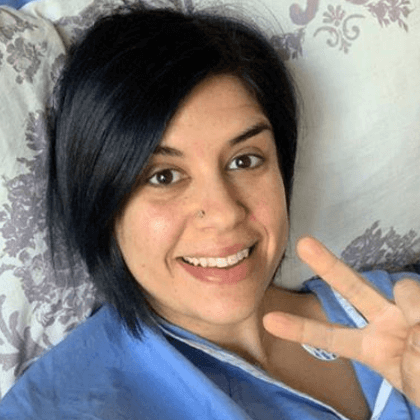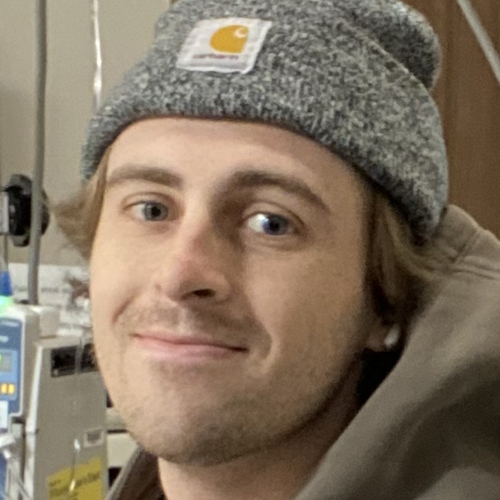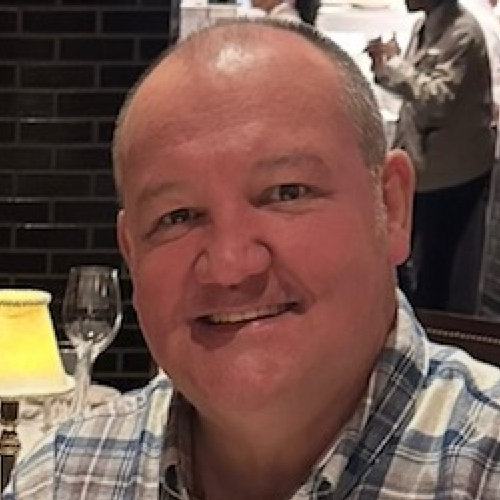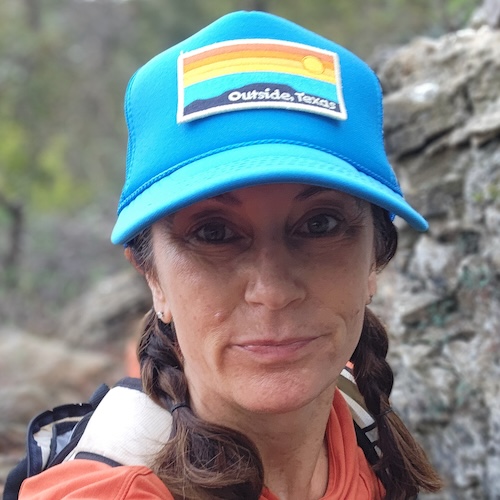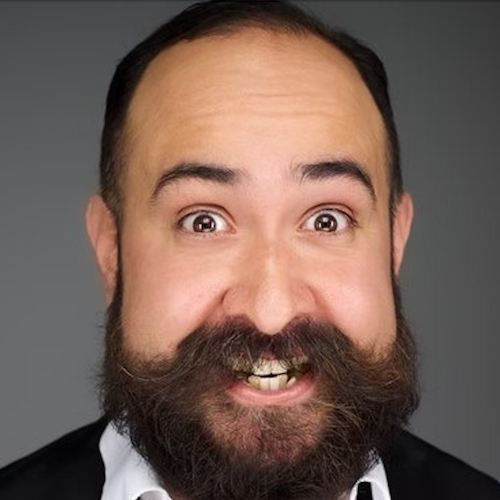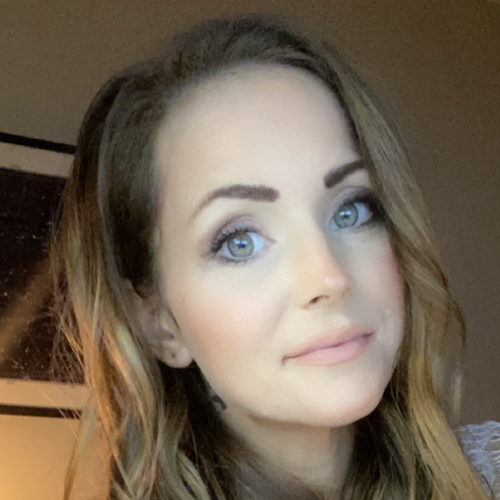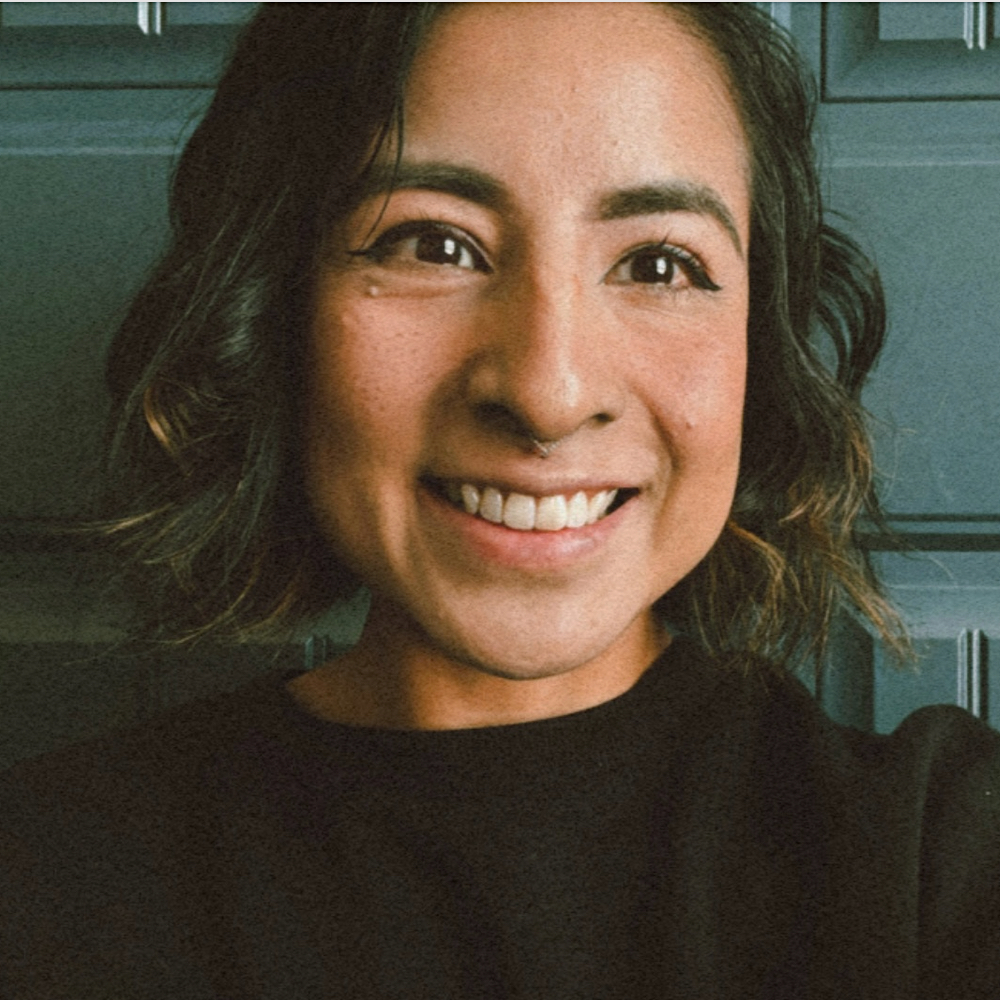Rachel’s Stage 1 Sigmoid Colon Cancer Story
Rachel shares how she overcame her stage 1 colon cancer diagnosis, from her first symptoms to going through surgery. Rachel also highlights the importance of mental health, self-advocacy, and parenting with cancer.
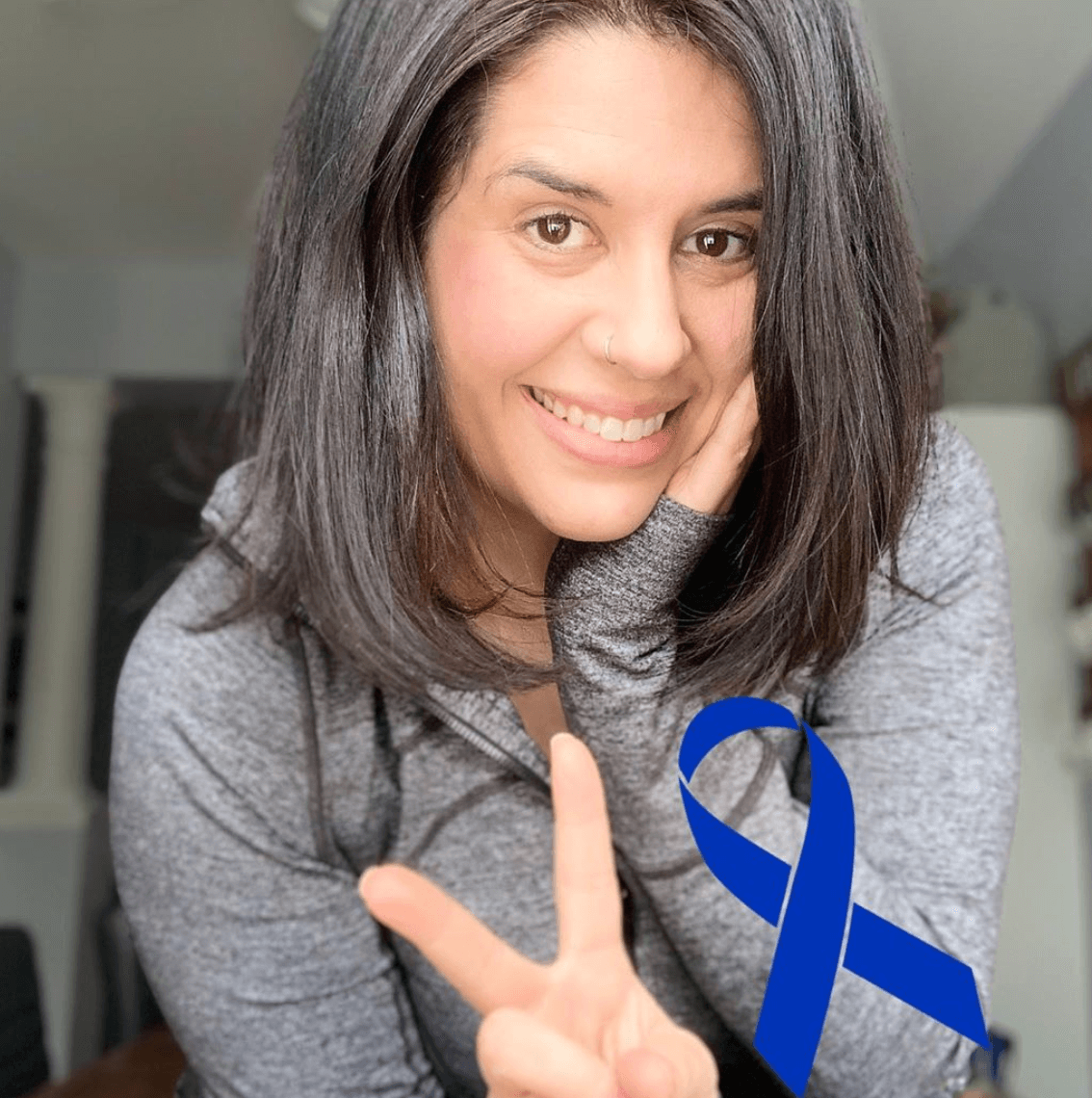
- Name: Rachel B.
- Diagnosis:
- Colon cancer
- Sigmoid
- Staging: 1
- 1st Symptoms:
- Stomach discomfort
- Nausea
- Bloating
- Blood in stool
- Treatment:
- Colectomy
- Removed 15 cm of colon & 18 lymph nodes
- Colectomy
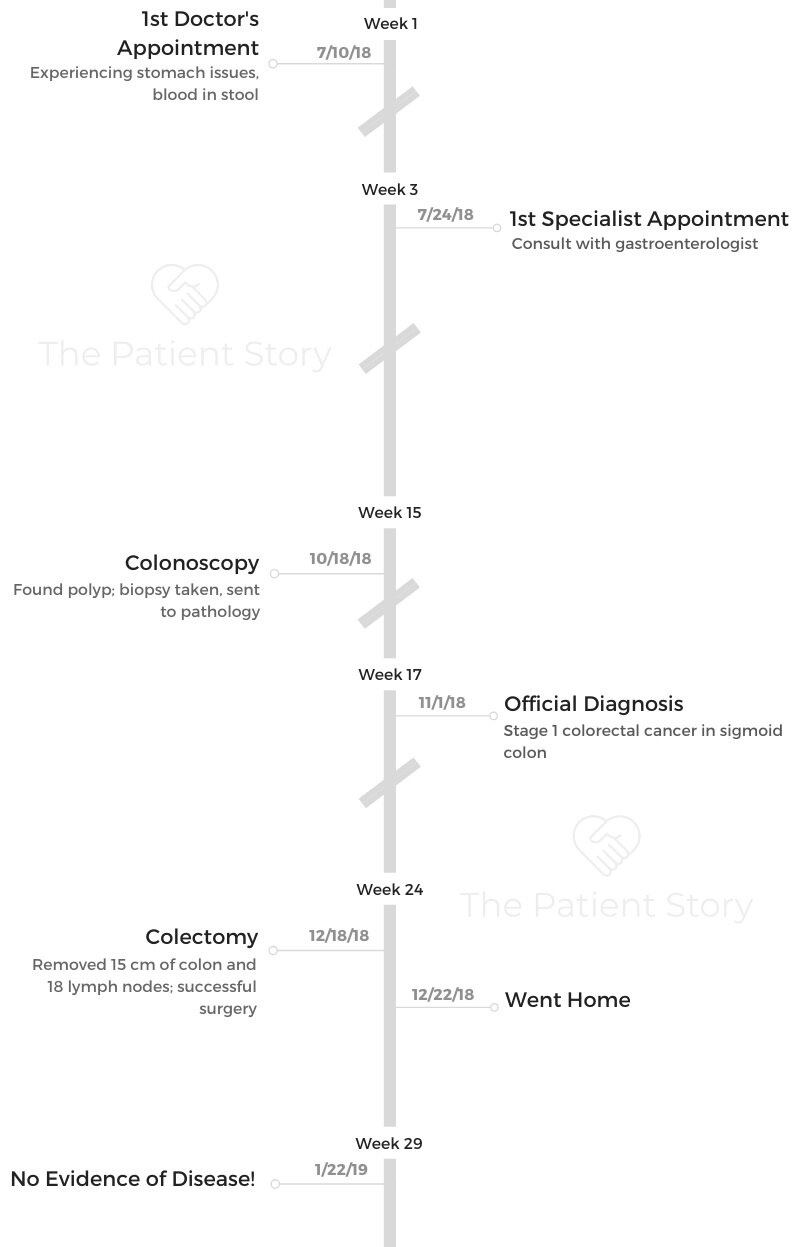
- Diagnosis
- Treatment
- Reflections
- How did you handle the mental health side of things?
- The importance of self-advocacy as patients
- How did cancer affect the relationship with your husband?
- What is it like being a parent with cancer?
- Can you talk about your support system?
- What’s your advice for people who want to help but don’t know how?
- What advice do you have for someone who’s just been diagnosed?
This interview has been edited for clarity. This is not medical advice. Please consult with your healthcare provider for treatment decisions.
The biggest thing is just don’t ever diminish a cancer patient’s feelings. If they want to complain, let them complain. If they want to go on with life as normal, let them.
It was the acknowledgement of my feelings that I really appreciated. I wanted to tell someone I felt crappy and have them tell it was okay that I felt crappy.
Rachel B.
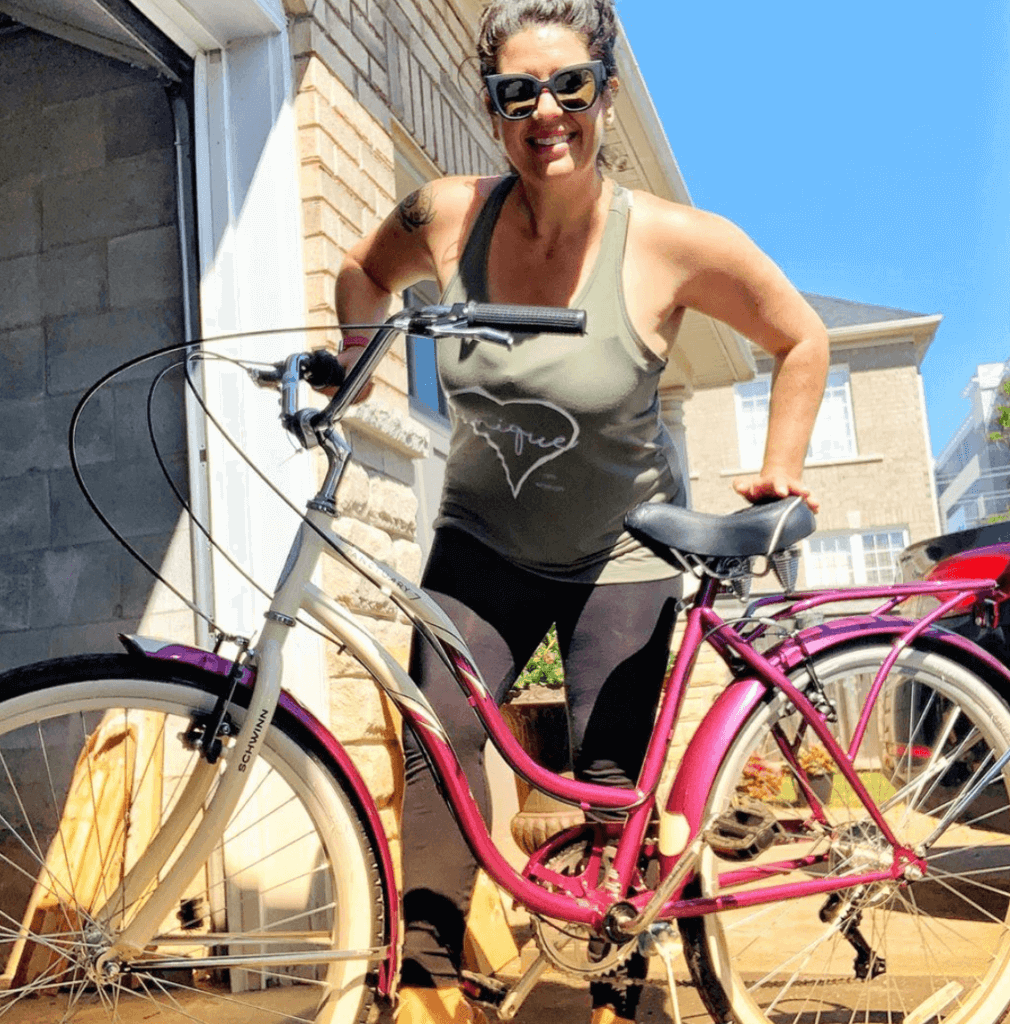
Diagnosis
What were your first symptoms?
I’ve struggled with my digestion since I was 10 years old. I just decided to get my act together and get really healthy. I lost a substantial amount of weight.
I lost more than 100 pounds, and I was feeling fantastic. I had energy, the crummy feeling in my stomach was gone, and all that stuff.
In the summer, I started getting that crummy feeling back despite taking really good care of myself. I was nauseous and bloated all the time.
My stomach just felt really off. The straw that broke the camel’s back was finding blood in my stool.
I went to my family doctor, and she knew I had been taking really good care of myself, so she took me seriously. She referred me to a gastroenterologist.
What happened at the gastroenterologist office?
I got in to see him in August. He asked about my family history. My mom goes in for colonoscopies, before she was over 50. She often gets polyps removed. Same with my dad. I told him that. I told him how I was feeling.
Even though I’m so young, I’m very grateful he took me seriously. He set me up for a colonoscopy and an endoscopy. I did have to wait a couple of months. I went in during October.
He found the polyp and was a little concerned because of the size, but cancer was the last thing I suspected. I thought I had polyps like my mom.
About 9 days later, I got a call that I needed to come into his office right away.
Getting a cancer diagnosis
Luckily, my family doctor had seen the paperwork and knew it was cancer. She called me 2 days before I was supposed to go in and told me to make sure I didn’t go alone.
She said she wasn’t an oncologist and couldn’t give me any details but that I had cancer.
I was so glad I didn’t go alone. I brought my husband and my mom. I think I just sat there and took in all the information. I’m a mom of 3 and was only 35.
I think I was in shock. My mom and husband asked a million questions. I just kind of sat there and nodded my head.
»MORE: Patients share how they processed a cancer diagnosis
Next steps after diagnosis
They got me in for an emergency colonoscopy the next day to get the ball rolling and tattoo the area. From there, I had another biopsy.
I was referred to a surgeon in 3 days. We put a surgery on the books just in case while we waited for pathology to come back.
He said there was only a 2 to 5% chance of spread, but since I was only 35, he said that number was still too high.
We decided to go ahead and go through with the surgery.
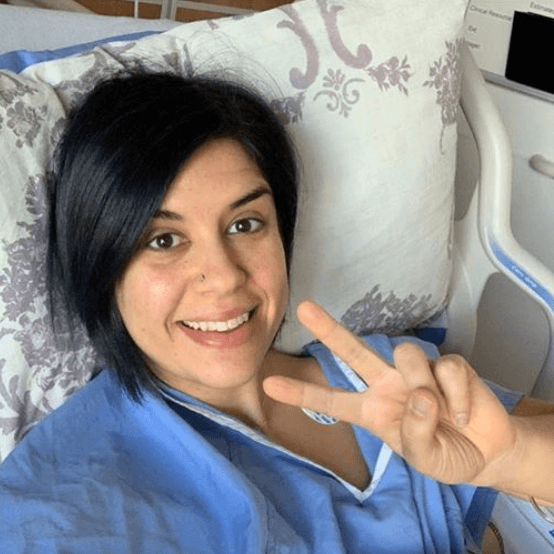
Treatment
Describe your colectomy
I had a colectomy the week before Christmas. They removed 15 centimeters of my colon and 18 lymph nodes from behind the area. I was in the hospital for 4 or 5 days. I got out a couple of days before Christmas. It was an interesting Christmas.
Surgery was really early in the morning. I had to be at the hospital at like 6 a.m. My mom took me so my husband could stay at home with the kids.
I had been told we caught it early and I wouldn’t need chemo, but I remember thinking, “What if they get in there, and it’s worse than they thought?”
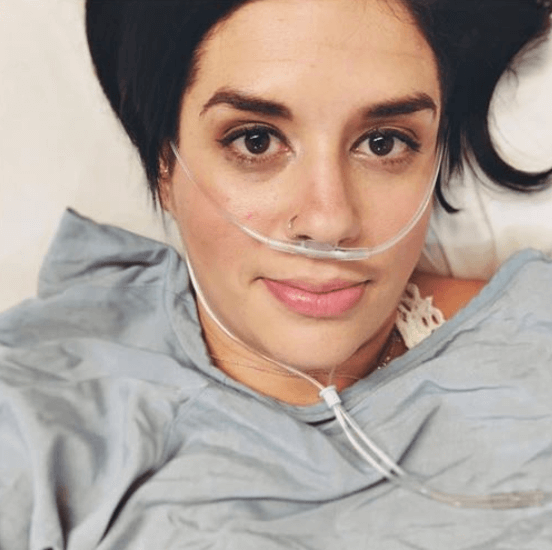
What was recovery from surgery like?
I was laying in my bed, and the surgeon came in. He said, “I think we got it all. I don’t think you’ll need chemo.”
That was scary because I had been told I wouldn’t need chemo already. The hospital was a big blur, but luckily enough, we live across the street from the hospital.
My kids came and saw me every day after school. We tried to keep everything light-hearted. My boys thought it was hilarious that I didn’t have to get up to pee because I had a catheter.
My family was super awesome at keeping me positive the whole time.
Do you have any lasting effects from surgery?
Where the portion of my colon was removed, I do have scar tissue. I have struggled with eating. I’ve had to figure out what I can eat and the size of my meals.
A few months after surgery, I was put on a liquid diet. It’s a daily struggle, but my specialist has said it’s just my new normal.
I still feel some pain where the scar tissue is at times. It’s odd because if my bladder is full, it pushes against the scar tissue, which causes pain.
There’s nothing from the cancer itself left, but I do have some lingering issues from surgery.
I’ve pretty much found my groove. I can’t eat broccoli or cauliflower or other foods that cause gas. I have a limited amount of vegetables I can eat. I’m really good at knowing what I can and can’t eat now.
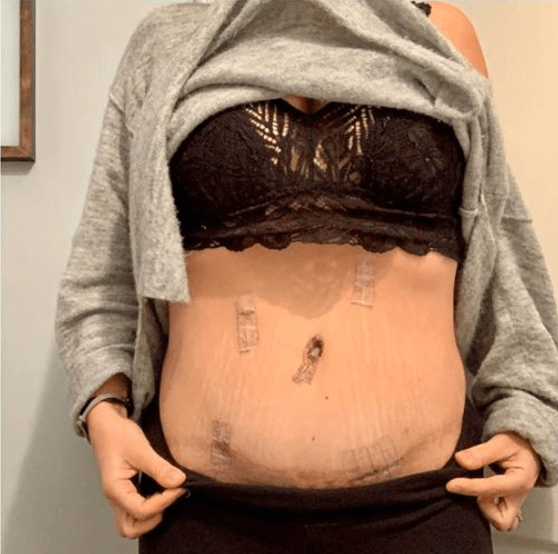
Processing the news of no evidence of disease (NED)
We had that conversation in February. They had closed down over Christmas. I lost my grandmother the day after I found out I was going to be okay. That was emotional.
I struggled because I felt like I had this imposter syndrome. I was only stage 1 and didn’t need chemo, but something that nobody told me was there’s a mental health battle that you have to deal with after you’re done.
I saw my oncologist in the hospital, and he gave me my official stage and said I was NED. I told him I was struggling mentally.
I talked to a social worker, who then suggested a coping clinic, which was group cognitive behavioral therapy. I didn’t think I needed that. I was like, ‘I’m not crazy. I don’t need therapy.’
It was the biggest blessing in disguise. I almost didn’t go in, but there were 10 of us ranging from 26 all the way to 70. We all had different cancers.
While it was supposed to be cognitive behavioral therapy, it turned into 2 hours a week where I could just say whatever I needed to say without fear of judgment.
I did that for 3 months. I went in every week. We actually all still keep in touch. We have a WhatsApp chat and check in on each other all the time.
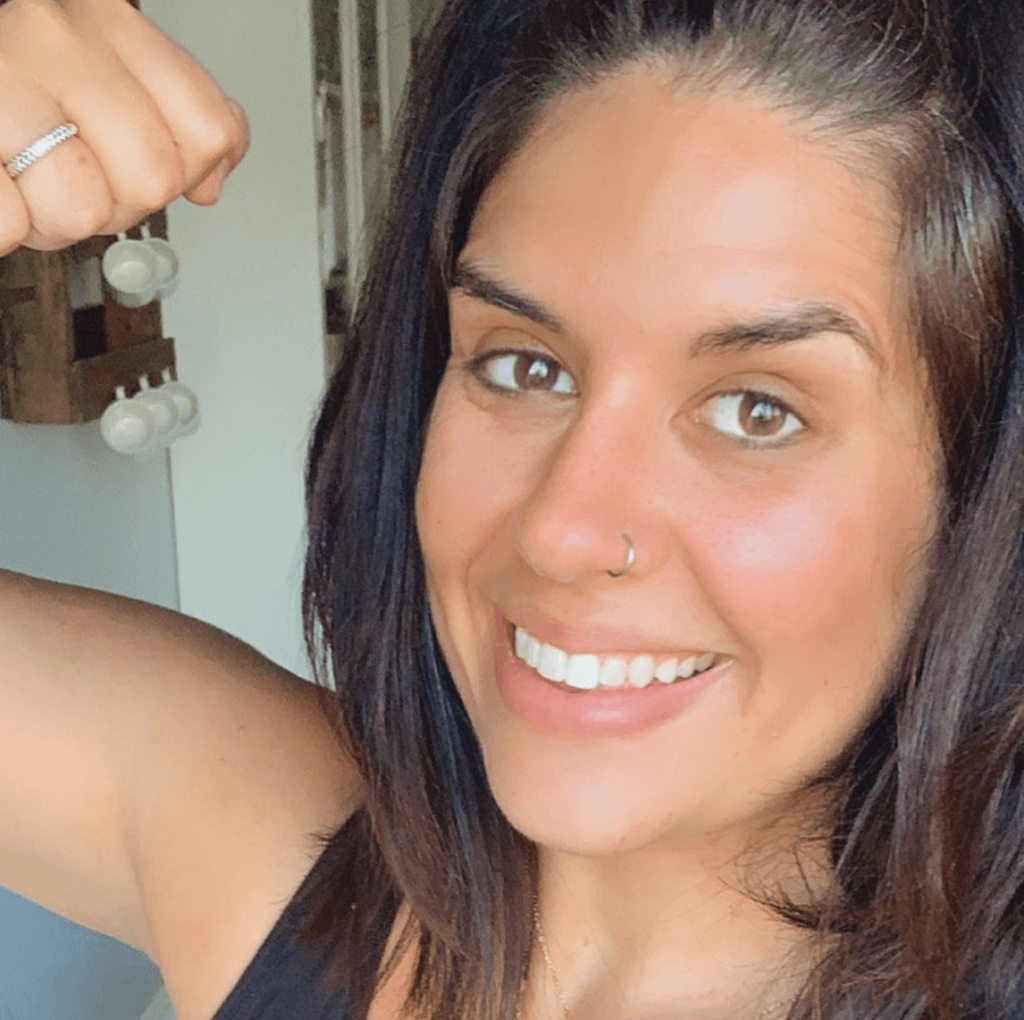
Reflections
How did you handle the mental health side of things?
I was very open about my journey the whole time. I’m an online health and wellness coach. I was shocked I could be diagnosed at 35.
I told my husband right away that I was going to be very open about it because I just felt like I needed to tell people.
When you don’t feel right, you have to be your own advocate. I wanted to make that clear. From day 1, people knew pretty much what was going on and would check in.
There was a gentleman in my group who didn’t need chemo either, and we agreed that family or friends would sometimes discredit our cancers because we didn’t need chemo. That was really hard sometimes.
I actually had a friend say to me, “Well, it’s not really cancer.” That hurt. Just because I didn’t need chemo doesn’t mean I didn’t have cancer.
That’s what sparked needing therapy, I think. The imposter syndrome that came from not needing chemo.
Plus, there’s just a whole mental health battle after everything is said and done. It’s like, “I’m okay now, but what happens in 2 or 3 years from now?”
I wasn’t scared of the cancer coming back necessarily. It was the fear of leaving my kids behind.
The importance of self-advocacy as patients
I understand that not all patients have really great medical professionals who will listen to them. I’ve heard people whose doctors think they’re too young for colorectal cancer screening, even though they have family history.
I was really lucky that my family doctor was so wonderful. She’s been my doctor for 30 years, and she really took my concerns to heart.
I just tell people that if you’re not happy or satisfied with your medical care, within reason, it’s okay to go get a second opinion. It’s okay to go to somebody else, it’s okay to push, and it’s okay to seem annoying.
At the end of the day, you’re fighting for your health. It’s okay to use all the resources you can.
Doctors don’t know what you’re feeling unless you speak up. It’s very important that you speak up.
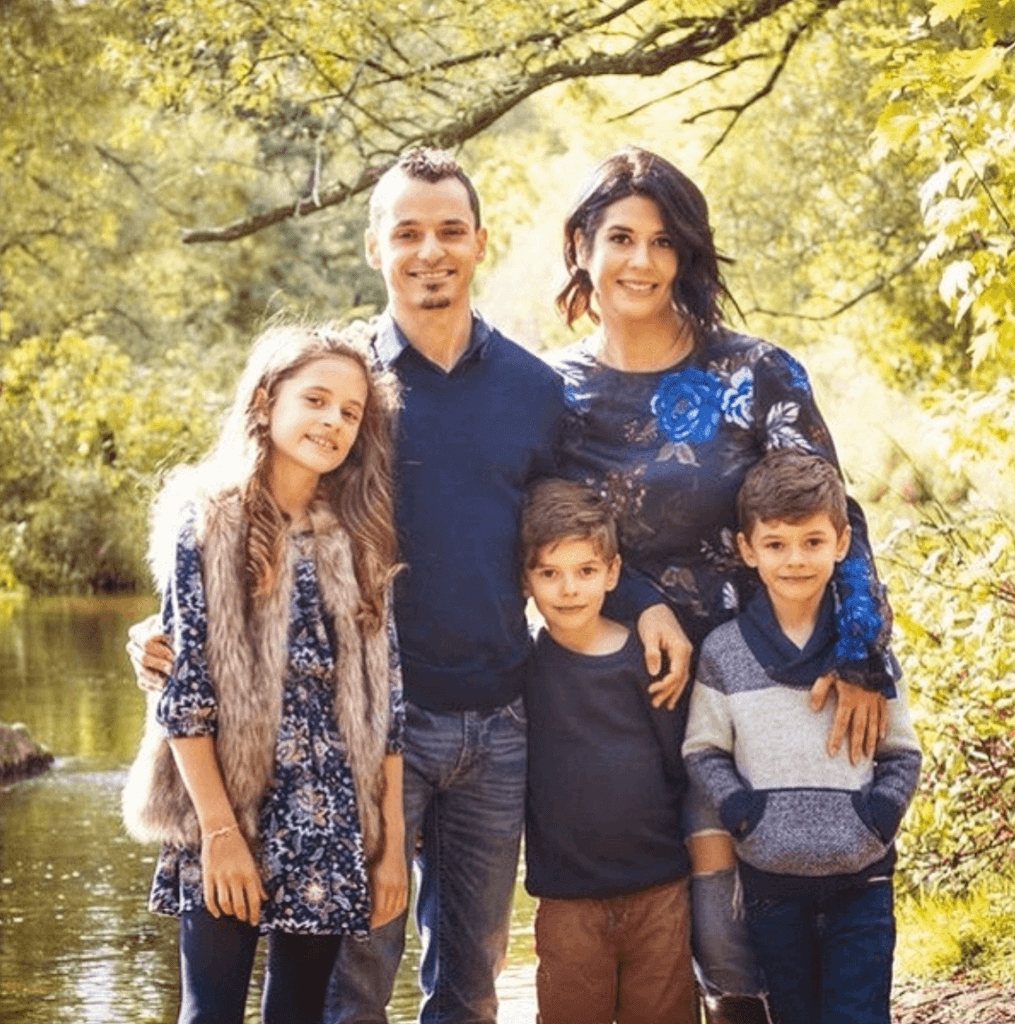
How did cancer affect the relationship with your husband?
He doesn’t like to talk about it. It’s actually been one of the biggest struggles. He suffers from anxiety and depression. I’ve come home at times and wanted to discuss results or protocols, and he’ll be paying attention but not really.
I know that’s because he doesn’t want to think about losing me. He’s admitted that he doesn’t like talking about it and knows he needs to work on it.
He’s a very active spouse and parent. We have a great relationship, but I know this has scared the crap out of him.
We’ve recently had a sit down about our feelings about everything and talked about how we know it’s not good to bottle things in.
He took the initiative to do some fundraising and is trying to talk about it more. We started a fundraising page called “Rollin’ for the Colon.”
He’s gonna ride his bike. Now that he’s found an outlet, he’s doing better. He’s open to it much more now.
»MORE: 3 Things To Remember If Your Spouse Is Diagnosed With Cancer
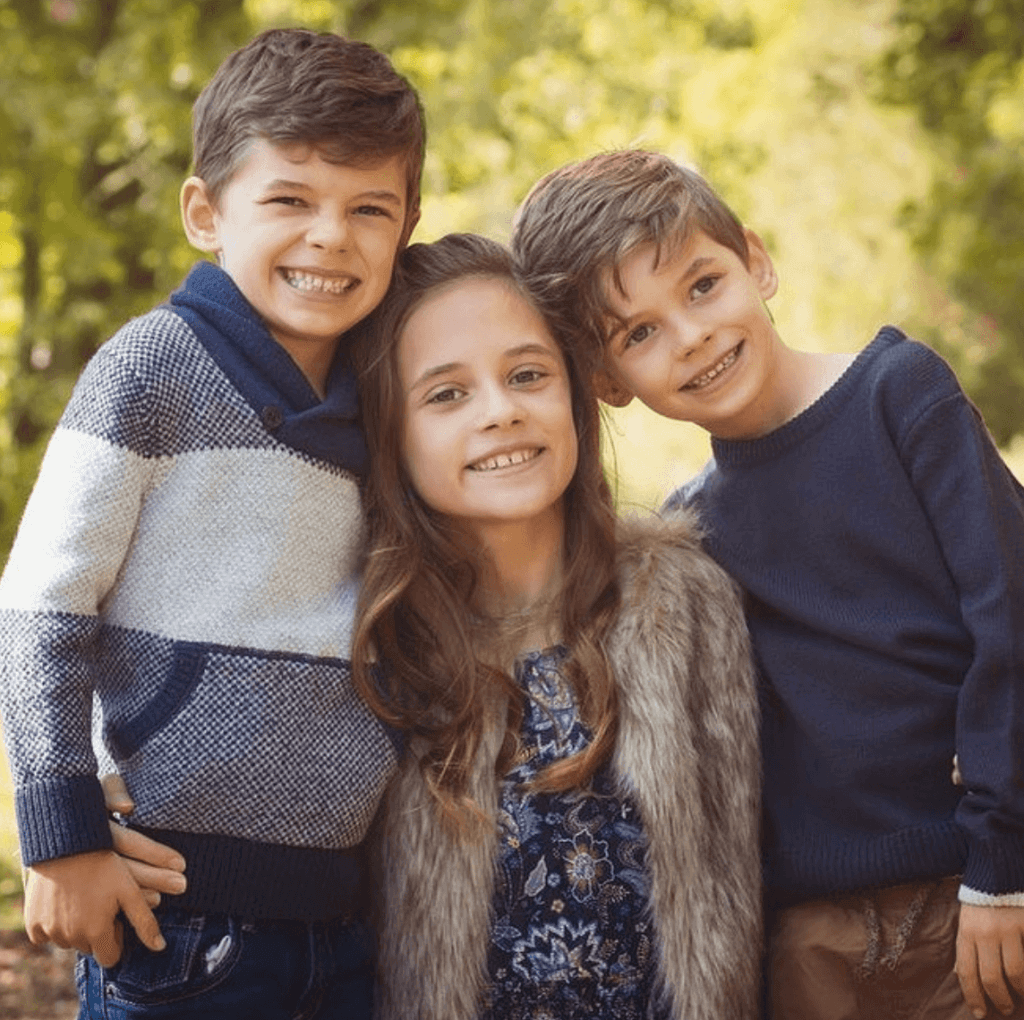
What is it like being a parent with cancer?
I don’t think it was the cancer itself I was scared of. I think I was mostly scared of watching my kids have to go through it. We sat down with my daughter, who was a week shy of turning 10, and we told her what was going on.
We gave her all the information we had. She is very smart. She had a good cry, and I told her we would keep her in the loop. At the time, my twins were 5, so we didn’t tell them.
I was out and about with one of the twins at one point. We walked past a booth that was raising money for the American Cancer Society, and he asked what it was.
I explained, and he said, “Oh, that’s what you had.” He had clearly heard us talking about it. I explained that I was all better now.
A few months ago, we told the other twin. He’s more of a dreamer and is always up in the clouds. He was like, “Wait, you had cancer?” We just reassured him like we did the other 2 that I was fine now.
It’s definitely super heartbreaking to tell your kids you have cancer.
»MORE: Parents describe how they handled cancer with their kids
Can you talk about your support system?
My mom went to all my appointments, she came to my surgery, and she would go bring my family food every day. She’s only 15 minutes away, so we’re very close.
I am very lucky that I live in a neighborhood where everyone on our street knows each other. We’re a tight-knit group. They would bring frozen meals and things like that. I have friends sending me messages and things.
I made it a point to really stick with this one friend because she said, ‘You can say whatever you want. You can laugh, joke, be sad, whatever you want, and I’ll just listen.’
I’m very grateful for her.
I have more than 350 clients. They all banded together and bought me a spa package. They sent me books and bought my family a photo shoot. I had a lot of emotional support.
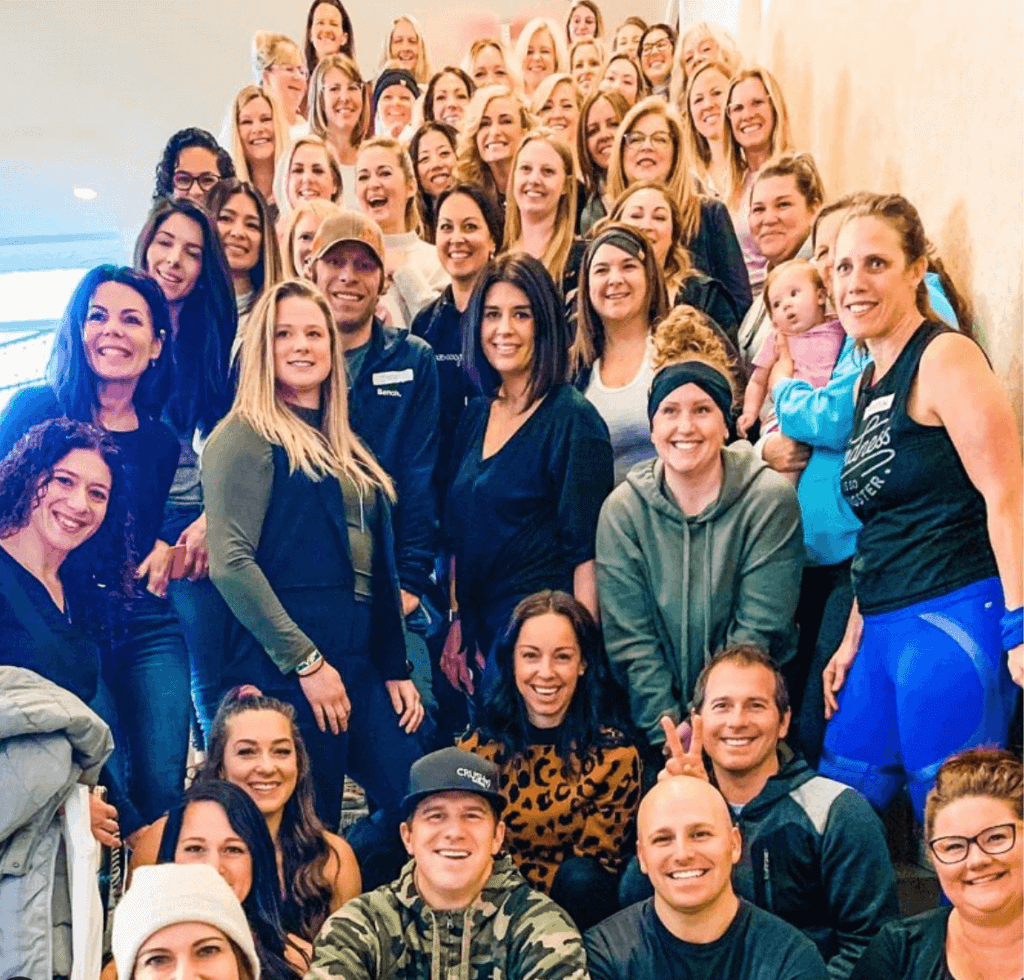
What’s your advice for people who want to help but don’t know how?
At first, a lot of my friends were messaging me and asking why I was ignoring them. It’s not that I cut everyone off. I just needed some space to digest my news.
I told them, “I’m dealing with some really heavy stuff right now. I just need some time.” At first, give people a little time and space.
The biggest thing is just don’t ever diminish a cancer patient’s feelings. If they want to complain, let them complain. If they want to go on with life as normal, let them.
It was the acknowledgement of my feelings that I really appreciated. I wanted to tell someone I felt crappy and have them tell it was okay that I felt crappy.
Other than that, it was beyond me. Especially after my surgery, I really just wanted support for my family. It was nice knowing people were making sure my kids were fed or had childcare if my husband needed to be with me.
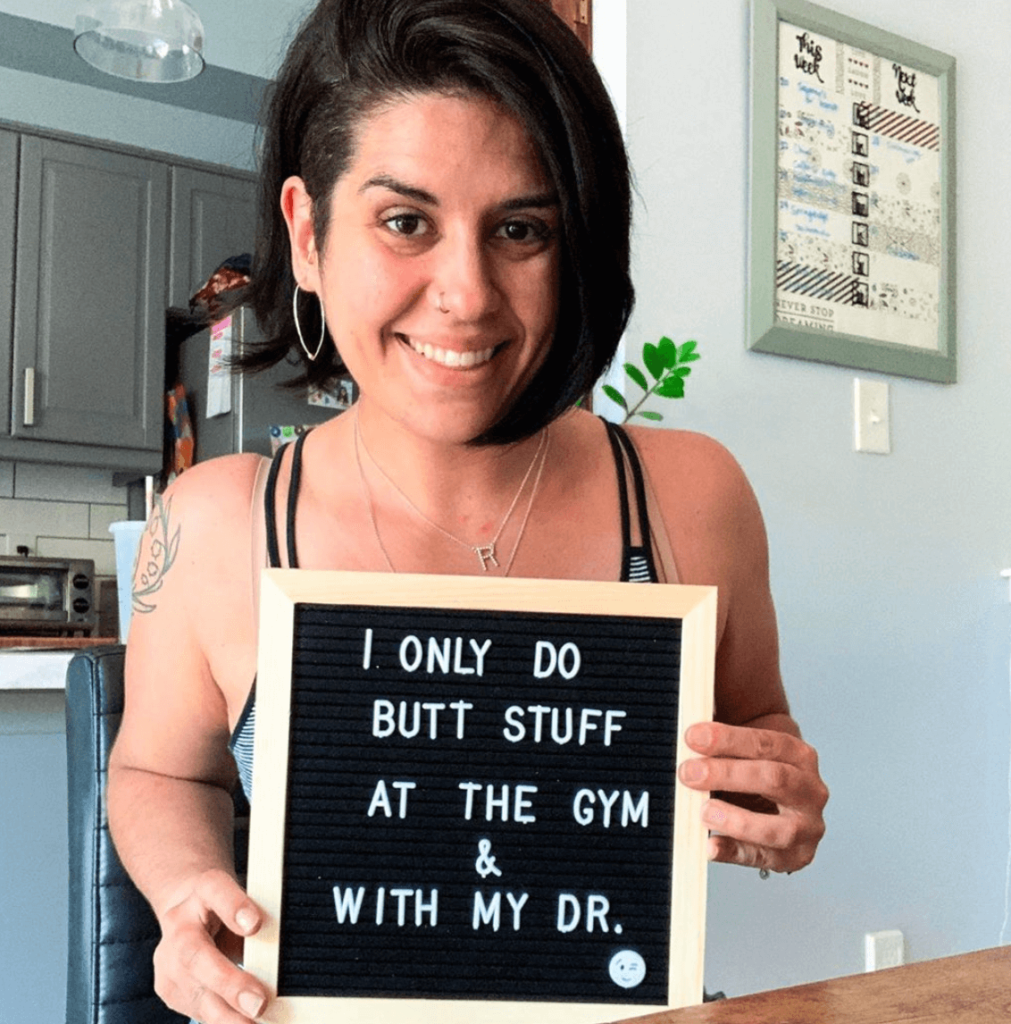
What advice do you have for someone who’s just been diagnosed?
Talk. Talk to somebody. Talk to anybody.
I was diagnosed, and a week later, there was an article in the newspaper about a woman who was really young, had young kids, and was diagnosed with colon cancer. She had been treated at my hospital. My mission was to find her.
There were obviously privacy issues, but I gave the hospital my information and asked if they could pass it along to her.
She was kind enough to meet me for coffee. It was so nice to talk to someone who was going through the same thing I was going through. It was nice to have someone who knew about it tell me I was going to be okay.
Find someone you can trust and tell anything you want to. There are going to be days where you want to be quiet. Then there are going to be days when you have verbal diarrhea.
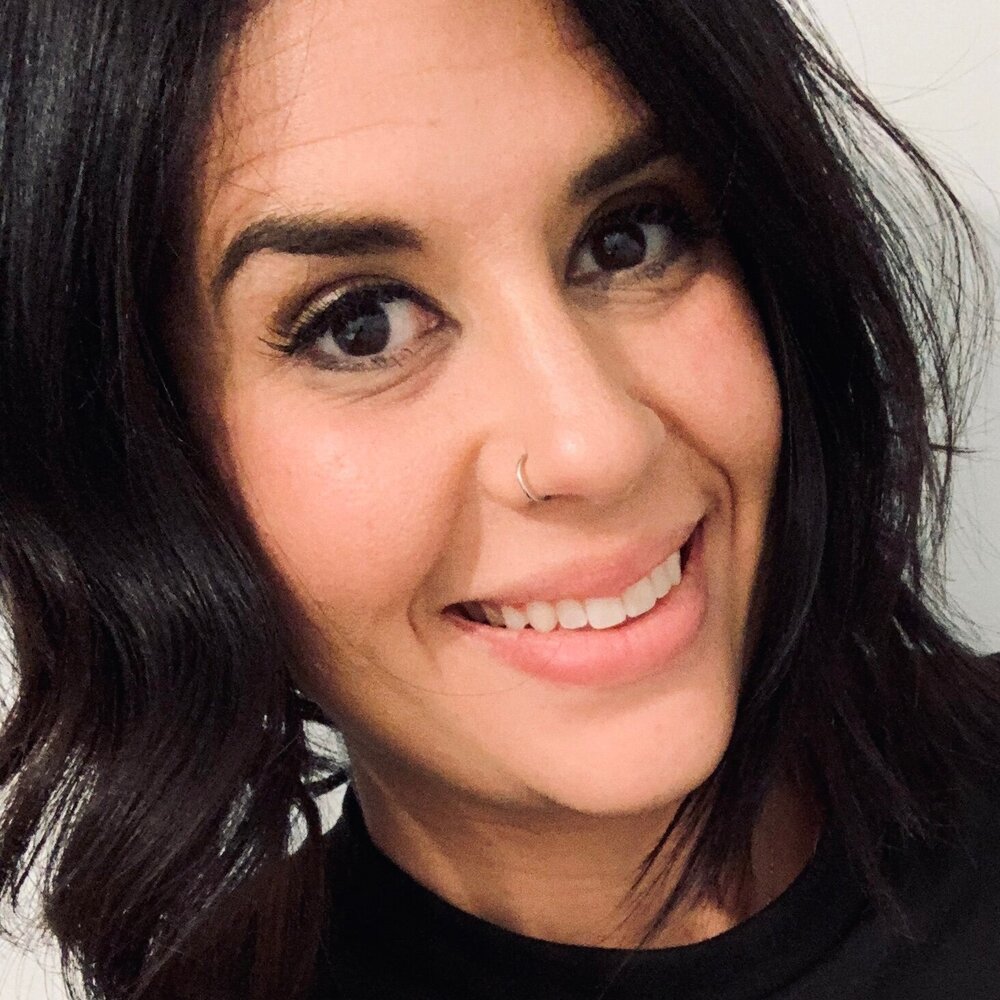
Inspired by Rachel's story?
Share your story, too!
Colon Cancer Stories
Jackson A., Colon Cancer, Stage 3
Symptom: Sharp abdominal pain
Treatment: Surgery (emergency transverse colectomy)
Jay W., Colon Cancer, Stage 4
Symptom: Occasional presence of blood in stool
Treatments: Chemotherapy, surgery (installation of port and liver infusion pump, colectomy, hepatectomy, liver ablation, removal of liver infusion pump)
Kelly C., Colon Cancer, Stage 4
Symptoms: Constipation, bloating, severe abdominal pain
Treatments: Surgeries (colectomy, colostomy, hepatectomy), chemotherapy
Marc Anthony S., Lynch Syndrome and Colon Cancer, Stage 2A
Symptoms: Blood in stool, severe constipation, persistent exhaustion, constantly feeling cold
Treatment: Surgeries (sigmoid colectomy, lymphadenectomy)
Crystal W., Colon Cancer
Symptoms: Blood in stool, intermittent severe lower abdominal pain, urinary tract infection (UTI) with strong odor, fistula
Treatments: Surgeries (cystectomy, oophorectomy, and hysterectomy), chemotherapy
Albita G., Colon Cancer, Stage 4
Symptoms: Blood in stool, pain during defecation, constant constipation, steady weight gain in the midsection despite exercising
Treatments: Surgeries (colectomy, hepatectomy, hysterectomy), chemotherapy, radiation
